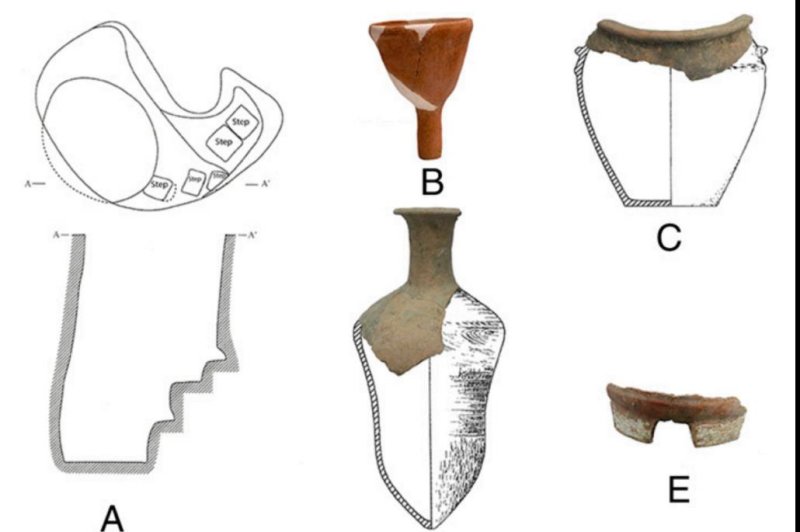New evidence suggests artifacts unearthed in China, including funnels and clay pots, were used to brew beer some 5,000 years ago. Photo by Wang, et al./Proceedings of the National Academy of Sciences
XI'AN, China, May 23 (UPI) -- Thanks to researchers from Stanford University, it's now possible to brew an ancient Chinese beer. Scientists were able to reconstruct an ingredient list by analyzing the residues inside 5,000-year-old ceramic pots.
The pots were uncovered between 2004 and 2006 at an archaeological site known as the Mijiaya site, located on the banks of the Chan River in Shaanxi Province, China. In addition to the pots used to boil the mash and foster fermentation, archaeologists also unearthed funnels, stoves and stone-insulated pits for temperature-controlled storage.
Last year, Stanford scientists traveled to China to analyze the artifacts. They confirmed what the evidence suggested: that the ancient villagers of Mijiaya had developed advanced beer-brewing technology as early as 3400 B.C.
The giveaway was the presence of oxalate, a byproduct of the fermentation process. The analysis also identified residues from broomcorn millet, barley, Job's tears and tubers.
Boiled and allowed to ferment, these ingredients created a beer that Stanford researcher Jiajing Wang told NPR "would taste a bit sour and a bit sweet."
Barley, which originated in Central Asia, didn't become a staple crop in China until 3,000 years later. The findings suggest the villagers were importing the crop for the specific purpose of brewing beer.
"It is possible that when barley was introduced from western Eurasia into the Central Plain of China, it came with the knowledge that the grain was a good ingredient for beer brewing," Wang told LiveScience.
Wang, a PhD student, is the lead author of a new paper on the ancient beer residue, published this week in the journal PNAS.
The findings suggest beer may have not only ushered in a new crop, but encouraged the development of early civilizations in the region.
"Like other alcoholic beverages, beer is one of the most widely used and versatile drugs in the world, and it has been used for negotiating different kinds of social relationships," researchers wrote. "The production and consumption of Yangshao beer may have contributed to the emergence of hierarchical societies in the Central Plain, the region known as 'the cradle of Chinese civilization.'"















